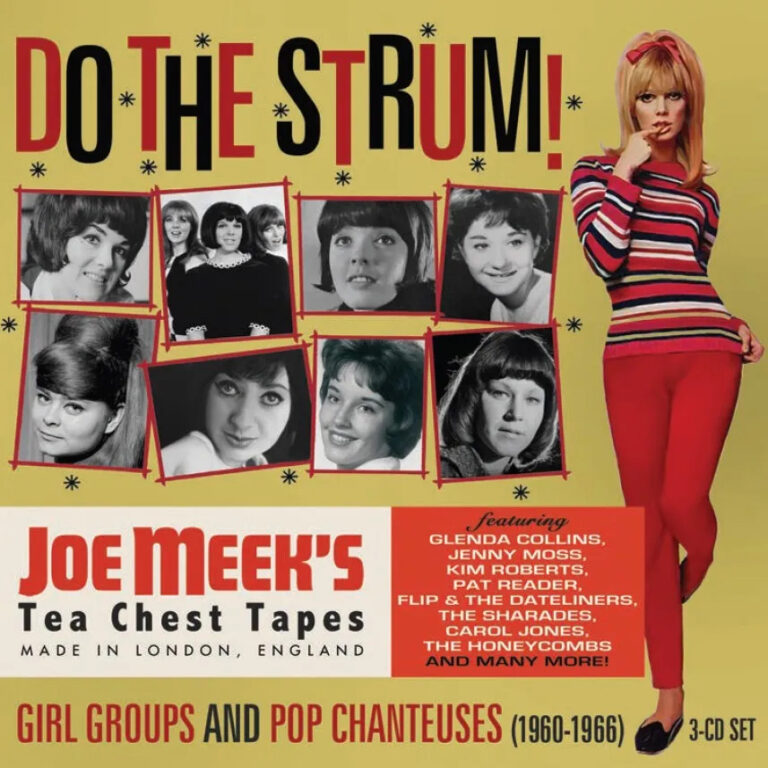A Joe Meek Anthology Unearths Some Gems
The late rock and pop producer Joe Meek, who is widely regarded as England’s answer to Phil Spector, masterminded many British hits, such as the Cryin’ Shames’ classic “Please Stay.” He also produced a couple of numbers that made the American charts, among them the Honeycombs’ “Have I the Right?” and the Tornados’ instrumental “Telstar,” the first U.K. rock recording to make it to No. 1 in the U.S.
A new Meek anthology contains no major hits, British or otherwise, however. Called Do the Strum: Girl Groups and Pop Chanteuses (1960–1966), it focuses on little-known and previously unheard material, nearly a third of which Meek himself wrote or co-wrote. It includes alternate and demo versions and more than 40 heretofore unreleased tracks from Glenda Collins (a Meek favorite, who delivers 16 of the songs) and such other artists as the Sharades, Flip & the Dateliners, and Jenny Moss. Two of the numbers are so obscure that their performers are listed as “unknown.” The box comes with an illustrated 20-page booklet that contains brief bios of the featured artists.
The anthology mines the same territory and embraces many of the same singers as Let’s Go: Joe Meek’s Girls!, which came out in 1996. But Do the Strum digs deeper. While Let’s Go offered 29 tracks on a single CD, the new clamshell-boxed set fits in 88 remastered songs (including most of the ones on the earlier release) and delivers more than three and a half hours of music on three discs. The first of these features all the released singles by Meek’s female artists while the other two include additional material from 1960-63 and 1964-66, respectively.
It’s a mixed bag. Most of Meek’s artists weren’t quite as talented as the ones in Spector’s stable. Moreover, some of the recordings here date from the early sixties and reflect the tastes of this pre-Beatles era, when light pop confections dominated the airwaves. Tracks such as Eve Boswell’s “Sur Le Pont D’Aignon” and Pat Reader’s “Cha Cha on the Moon” are sugary and disposable, and a clamorous cover of the standard “Heart and Soul” by Diane & the Javelins is a mess. Numbers such as Yolanda’s “With This Kiss” and Pamela Blue’s “My Friend Bobby” are more likable but come from the same saccharine world as better-known contemporaneous hits like “Shelly Fabares’s “Johnny Angel” and Little Peggy March’s “I Will Follow Him.”
Even some of the early material – such as Collins’s sound-effects-enhanced “I Lost My Heart at the Fairground” – hints at Meek’s emerging production genius, however; and many of the tracks, particularly those from 1964 onward, do more than hint. The set’s lushly produced versions of “Something I’ve Got to Tell You” (one by Collins and one by the Honeycombs) both should have been hits and Carol Jones’s “Cinderella Jones” is as seductive as similarly styled, better-known tunes like Kathy Young’s “A Thousand Stars.”
Consider this box an opportunity to hunt for hidden treasure. You’ll have to dig through a bit of fool’s gold to find it, but if you’re a fan of Meek’s work and the so-called girl-group era, you will encounter some gems.
More Live Dead
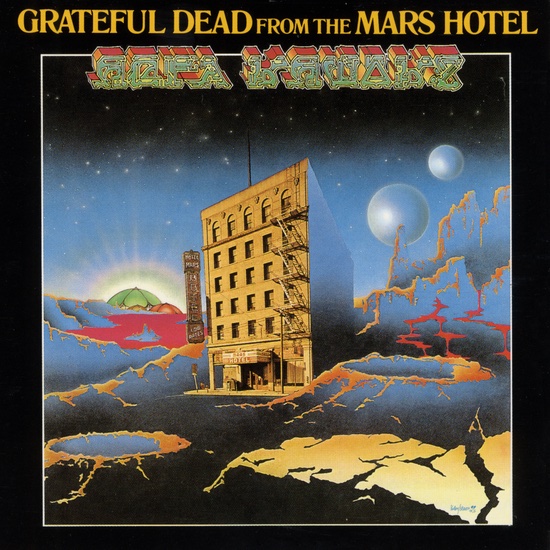
The Grateful Dead’s 50th anniversary reissue series continues with a three-CD deluxe edition of 1974’s From the Mars Hotel, the group’s seventh studio LP and the second to be issued on its own label. Dominated by well-constructed songs written by Jerry Garcia and lyricist Robert Hunter, the original album features such concert and FM radio favorites as “U.S. Blues,” “Scarlet Begonias,” “Ship of Fools,” and “China Doll.”
In addition to a remaster of that album, the first disc of the new edition includes demos of “China Doll” and “Wave That Flag,” a precursor to “U.S. Blues.” Not here, however, are the seven bonus tracks that showed up on a 2004 edition of the LP.
The remaining discs contain a previously unreleased, nearly complete May 1974 Nevada concert that clocks in at two-and-a-half hours. The first show to feature the Dead’s massive Wall of Sound audio system, it incorporates several Mars Hotel numbers as well as such concert staples as “Mexicali Blues,” “El Paso,” “It Must Have Been the Roses,” “Mississippi Half-Step Uptown Toodeloo,” and “Sugar Magnolia.” A reading of “Truckin’” trucks on for more than 10 minutes while a version of the adventurous “The Other One” is more than twice that length.
The underrated original album, which is replete with Garcia’s elegant guitar work and the band’s fine vocal harmonies, belongs in any fan’s collection. As for the concert, it’s a good one but the group has previously released approximately one zillion other live recordings, including four shows from this same tour. Only you can say how much of this band’s concert material is too much. For some Deadheads, of course, there’s no such thing.
A Big Dose of Early Zappa
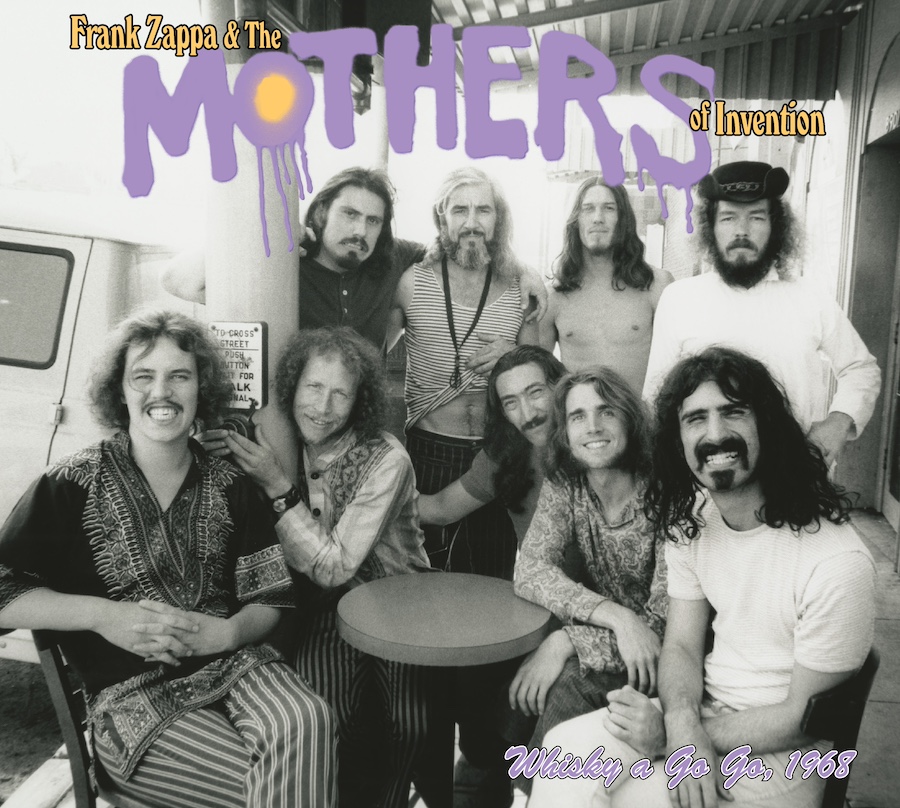
Frank Zappa & the Mothers of Invention’s Whisky a Go Go, 1968 preserves a nearly three-hour concert given on July 23, 1968, at the famed Los Angeles venue named in the title. Apparently one of the earliest live recordings by Zappa & the Mothers, the concert was originally intended for contemporaneous release but nearly all of it sat in the vaults for more than half a century.
By the time of this concert, Zappa and the Mothers had established themselves as a one-of-a-kind underground rock outfit via four albums – 1966’s Freak Out!, 1967’s Absolutely Free, and 1968’s We’re Only in It for the Money and Lumpy Gravy. (The latter was billed as a Zappa solo album.) The Whisky a Go Go show, which includes selections from all of these except We’re Only in It for the Money, features such standouts as “Help, I’m a Rock,” “America Drinks & Goes Home,” “Brown Shoes Don’t Make It,” and the two-part, 16-minute, mostly instrumental “King Kong.” An accompanying 40-page booklet offers photos from the event; essays by Zappa “Vaultmaster” Joe Travers and Pamela Des Barres of the GTOs, who add some vocals to “King Kong”; and a conversation between Zappa’s son Ahmet and Alice Cooper, who performed at the Whiskey on the same night this concert was recorded.
The three-CD set (also available digitally and on five vinyl LPs) incorporates everything that made the early Mothers so compelling: adventurous jazz-rock, biting satire, and a mindboggling degree of eclecticism. Who else would put a version of “Octandre,” by pioneering classical composer Edgar Varese, in the same show with a doo-wop medley (“Memories of El Monte”) and a cover of a 1963 girl-group hit (the Angels’ “My Boyfriend’s Back”), not to mention a kazoo-dominated snippet of “God Bless America”?
Also Noteworthy
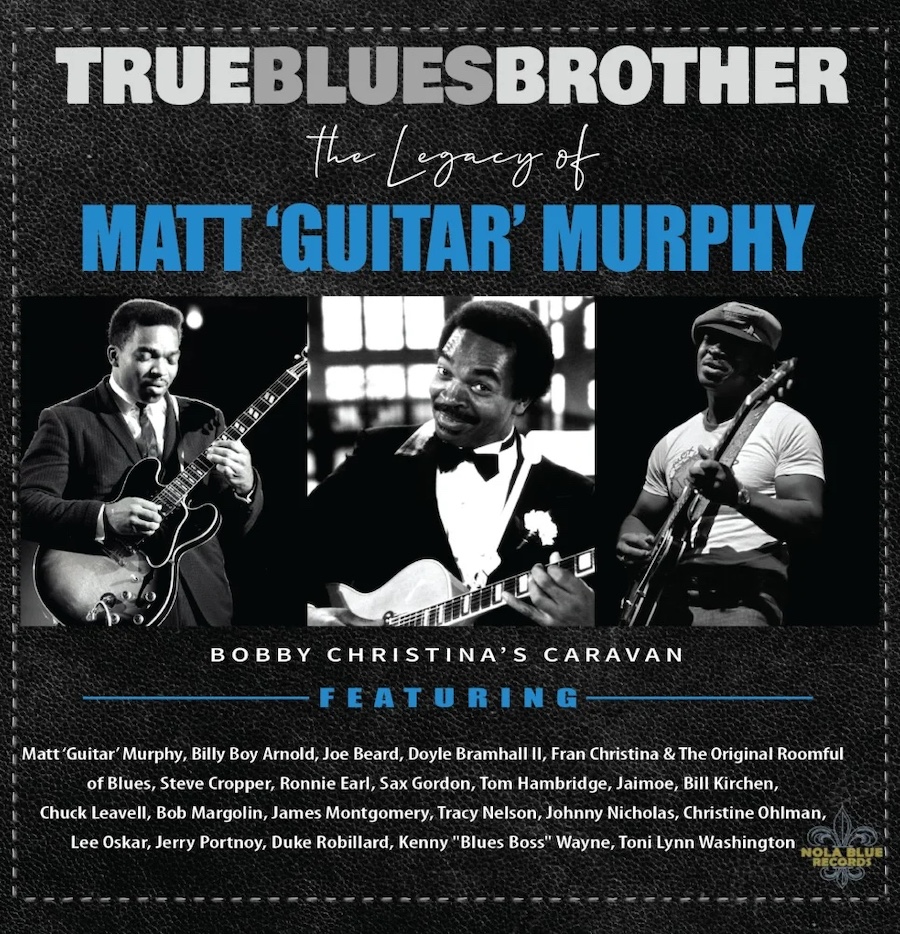
Bobby Christina’s Caravan, True Blues Brother: The Legacy of Matt “Guitar” Murphy. Matt “Guitar” Murphy, a figure on the Chicago blues scene since the early 1950s, died in 2018. At the time, he was working on a new record and, after his passing, drummer and producer Bobby Christina decided to turn it into a tribute album. The set, which contains 24 tracks on two CDs, is credited to Christina’s Caravan and features dozens of Murphy’s luminous fans, among them Steve Cropper, Ronnie Earl, Tracy Nelson, Chuck Leavell, Lee Oskar, and Duke Robillard.
Murphy himself can be heard on three numbers culled from the album he was making when he died, including his own “Matt’s Boogie” and “Matt’s Shuffle,” and his consummate guitar work on these tracks helps to explain why he had so many admirers. Also in the consistently excellent program are songs by Willie Dixon (“I Can’t Quit You Baby” and “Evil”), Memphis Slim (“Lonesome” and “I’m Lost Without You”), Chuck Berry (“You Never Can Tell”), and Muddy Waters (“Let Me Hang Around”).
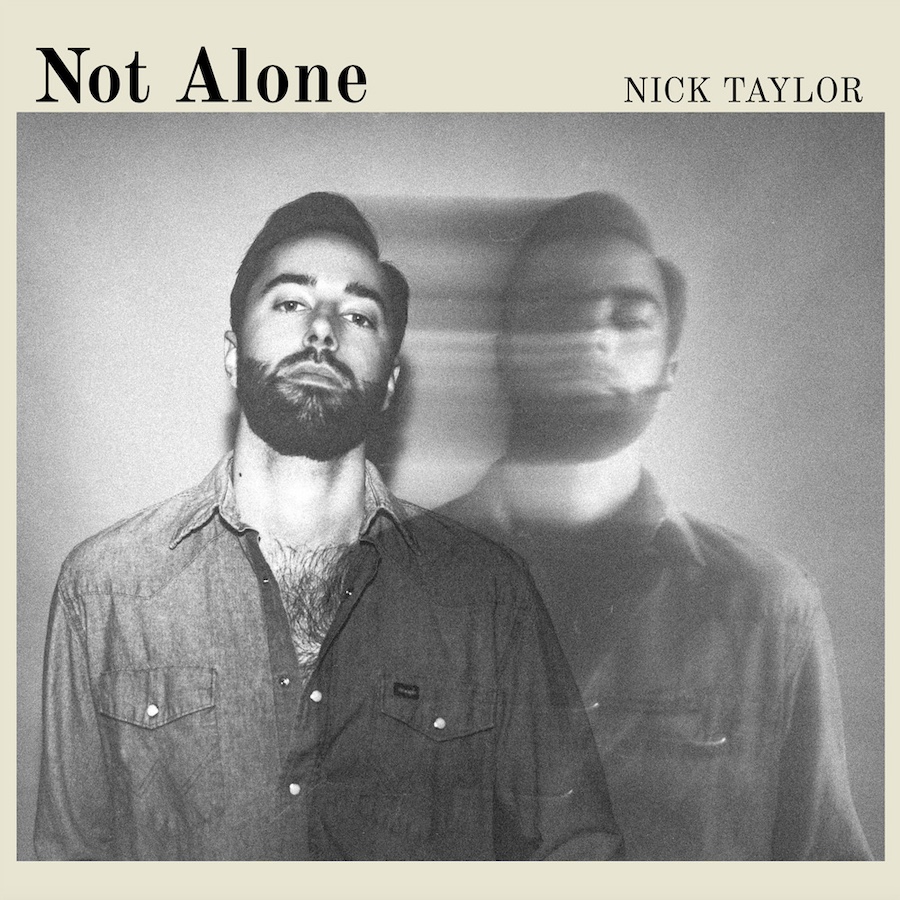
Nick Taylor, Not Alone. Austin, Texas–based singer, songwriter, and acoustic guitarist Nick Taylor sounds like a seasoned performer on his auspicious debut LP, which he recorded in Nashville with a band that adds mandolin, fiddle, pedal steel, dobro, and more. His assertive vocals and effusive story songs should appeal to fans of such artists as Warren Zevon, Richard Shindell, James McMurtry, and 1960s folkie David Blue.
Among the many high points in this all-originals set are “Deadland Future,” a strings-spiced tale of a man “working toward another man’s dream; the plaintive “3 AM on the Interstate,” whose protagonist finds himself alone on the highway and “calling you but it’s way too late”; and “Lover’s Dream,” a sweet “hidden” track that plays after the album’s 10 listed songs.
Jeff Burger’s website, byjeffburger.com, contains five decades’ worth of music reviews, interviews, and commentary. His books include Dylan on Dylan: Interviews and Encounters, Lennon on Lennon: Conversations with John Lennon, Leonard Cohen on Leonard Cohen: Interviews and Encounters, and Springsteen on Springsteen: Interviews, Speeches, and Encounters.


